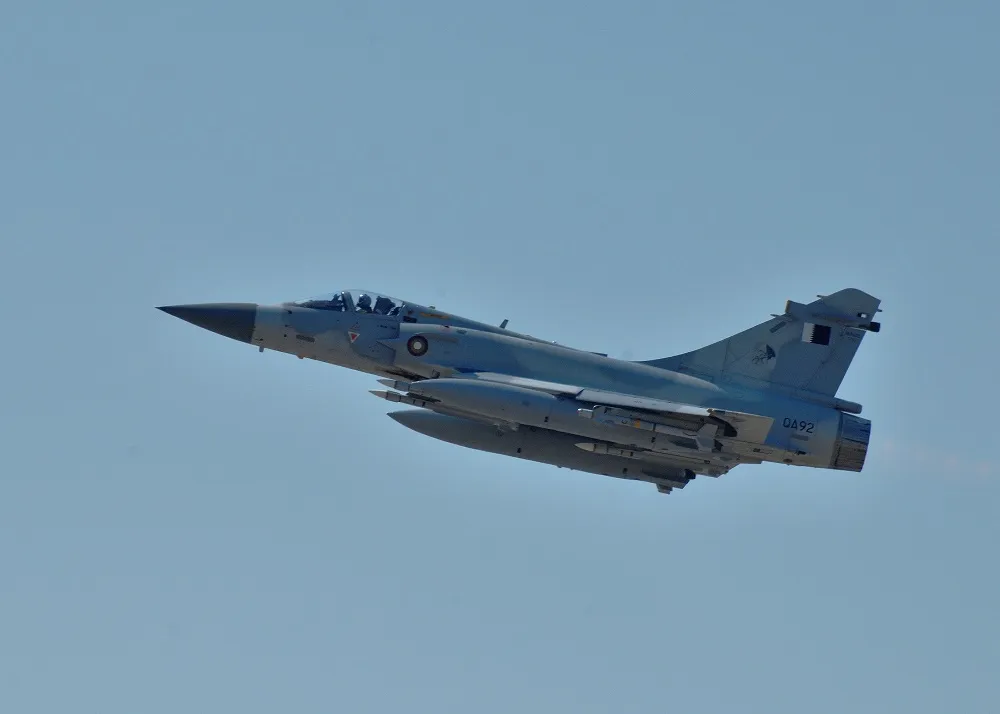
Qatari fighters accused of endangering A320
Apr 23, 2018

Qatari fighters have come under scrutiny for allegedly endangering an Airbus A320 aircraft during a recent incident. Reports suggest that the military jets engaged in reckless maneuvers in close proximity to the commercial flight, raising concerns about passenger safety. Witnesses described the situation as alarming, with the fighter jets flying dangerously low and erratically. Aviation authorities are investigating the matter, emphasizing the importance of maintaining safe distances between military and civilian aircraft. This incident has sparked discussions about airspace regulations and the need for stricter protocols to prevent future occurrences that could jeopardize the safety of travelers.
In recent news, Qatari fighters have been accused of endangering an Airbus A320 aircraft, raising serious concerns about air safety and international relations. This incident has sparked discussions regarding the conduct of military forces in civilian airspace and has implications for aviation regulations. Understanding the circumstances surrounding this situation is crucial for both the aviation industry and the public.
Understanding the Incident
The incident occurred when Qatari fighter jets were reported to have engaged in aggressive maneuvers near a commercial Airbus A320. Eyewitness accounts and flight data suggest that these maneuvers could have posed a significant risk to the aircraft and its passengers. The A320, a popular choice for airlines worldwide, has a strong safety record, but this incident raises questions about the safety of air travel in regions with heightened military activity.
Implications for Air Safety
Air safety is paramount in the aviation industry, and incidents like this one can lead to stricter regulations and oversight. The International Civil Aviation Organization (ICAO) and other governing bodies may need to reassess airspace usage, particularly in regions experiencing military tensions. It is essential to uphold the integrity of commercial air travel, ensuring that civilian flights are not jeopardized by military exercises.
Qatari Military Conduct
The conduct of the Qatari military has come under scrutiny following this incident. Military forces must adhere to international norms and regulations regarding the engagement of civilian aircraft. The actions of Qatari fighters, as reported, could be viewed as a violation of these norms, prompting calls for accountability and transparency from the Qatari government.
International Reactions
Reactions from the international community have been swift. Several countries have expressed concern over the safety of commercial air travel in regions where military activities are prevalent. Diplomatic discussions are underway to address these concerns and to seek assurances from Qatar regarding the conduct of its military forces. The potential for escalation in diplomatic tensions is a critical consideration in this scenario.
The Role of Aviation Authorities
Aviation authorities around the world are monitoring the situation closely, emphasizing the need for safety in air travel. The role of these authorities includes:
| Authority | Responsibilities |
|---|---|
| International Civil Aviation Organization (ICAO) | Sets global standards for aviation safety and security |
| National Aviation Authorities | Regulates and oversees aviation operations within their jurisdiction |
| Airlines | Ensures compliance with safety regulations and communicates with authorities |
Potential Outcomes
As investigations continue, several outcomes could arise from this incident. Possible scenarios include:
- Increased military oversight in civilian airspace
- Stricter regulations on military exercises near commercial flight paths
- Diplomatic negotiations aimed at preventing future incidents
Each of these outcomes carries its own set of implications for air travel safety and international relations, highlighting the need for a balanced approach to military activities in proximity to civilian aviation.
The Importance of Public Awareness
Public awareness surrounding air safety issues is vital. Passengers deserve to know that their flights are safe and that military activities do not pose a risk to their journeys. Transparency from airlines and governing bodies is essential to maintain trust in the aviation industry. The industry must prioritize communication with the public, especially in light of incidents that could affect passenger safety.
Conclusion
The allegations against Qatari fighters endangering an A320 aircraft underscore the delicate balance between military operations and civilian air travel. As investigations unfold, it is crucial for aviation authorities, governments, and the public to remain vigilant and proactive in ensuring that air safety remains a top priority. By fostering open dialogue and collaboration, the aviation industry can work towards preventing such incidents in the future, ensuring a safer sky for all travelers.
Related Articles

Explore Thailand: The Best Islands to Visit for Paradise, Adventure, and Relaxation

The Ultimate Guide to the Best Islands in Thailand for Your Next Getaway

Do babies need passports? How to get a passport for a newborn

How to get a U.S. passport fast: here’s how to expedite the process

What is Mobile Passport Control: 5 reasons why you should use it

SENTRI vs. Global Entry: A detailed guide

Do you need a passport to go to the Bahamas? Let’s find out

Do you need a passport to go to Mexico? A detailed guide

Do you need a passport to go to Canada? We got the answer

Do You Need a Passport for a Cruise: An Essential Travel Guide

Booster Seat Requirements: All the Rules to Follow in Your Rental Car

What Are the World’s Most Powerful Passports, and How Does Yours Rank?

How to Take a Passport Photo at Home: A Helpful Guide

You've got to have heart! Southwest's new livery

Your opinion: Should water be free on low cost carriers?

Young women bolder than guys as solo travellers
